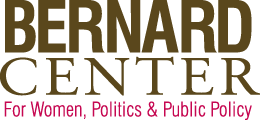Business, Politics, and the Economy
By Dean Alison Davis-Blake, Ross School of Business, University of Michigan
As we enter the final stretch leading into the 2012 presidential election, the debate rages on over who has the best strategy to fix the U.S. economy. Depending on who’s speaking, a candidate’s business expertise can be presented as an obvious strength or key weakness.
I find the intersection of business, public policy, and the economy to be a fascinating topic of conversation — not to mention research, policy, and practice.
At Michigan Ross we’ve aligned our 2012 speaker series around this very topic. My goal is to provoke creativity and curiosity in our community as we discover new ways to maximize the role of business as a contributor to social well-being.
In January Adrian Fenty, the youngest mayor to hold office in Washington, D.C., presented our Martin Luther King Jr. Memorial Lecture. Fenty risked his political career to take on issues plaguing the district’s residents. In just one term he led controversial reforms in the education system and completed a school modernization project. He also achieved record increases in public safety and drove housing and healthcare initiatives. Speaking to a large group in our Blau Auditorium, Fenty described the risks he took, the successes he achieved, and the political price he paid.
We also hosted Sergio Marchionne, CEO of Chrysler Group LLC. He detailed for students the ways in which the automaker’s leadership team worked with the U.S. and Canadian governments to emerge from an orderly Chapter 11. Chrysler Group had an operating profit of $2 billion for 2011, and has made huge gains in sales, market share, and public perception in just two years. The company also answered critics of government bailouts by paying back loans to the U.S. and Canadian governments six years ahead of schedule.
In April MSNBC journalist, political analyst, and author Michelle Bernard will address our graduating Class of 2012. She is the founder of the Bernard Center for Women, Politics, and Public Policy; the former president and CEO of the Independent Women’s Forum; and founder of IWF’s Iraqi Women’s Democracy Initiative. Bernard’s career path and stance on the important issues of our time fit perfectly with the theme of our speaker series.
As educators of tomorrow’s global business leaders, it’s important that we complement the academic experience with a wide variety of extracurricular options. By interacting with inspiring leaders and courageous citizens like these, I’m confident our students will discover new and groundbreaking ways to create value at that critical intersection of business, public policy, and the economy.
